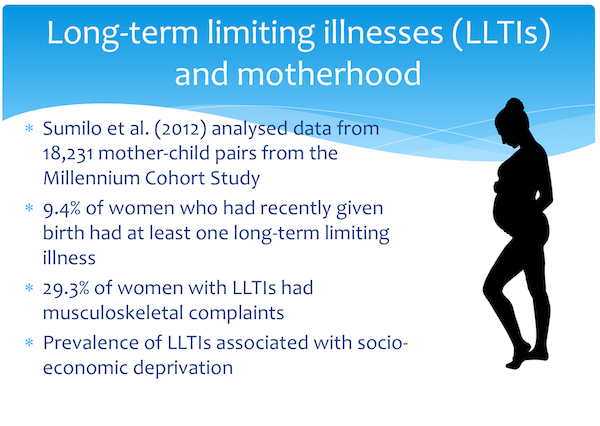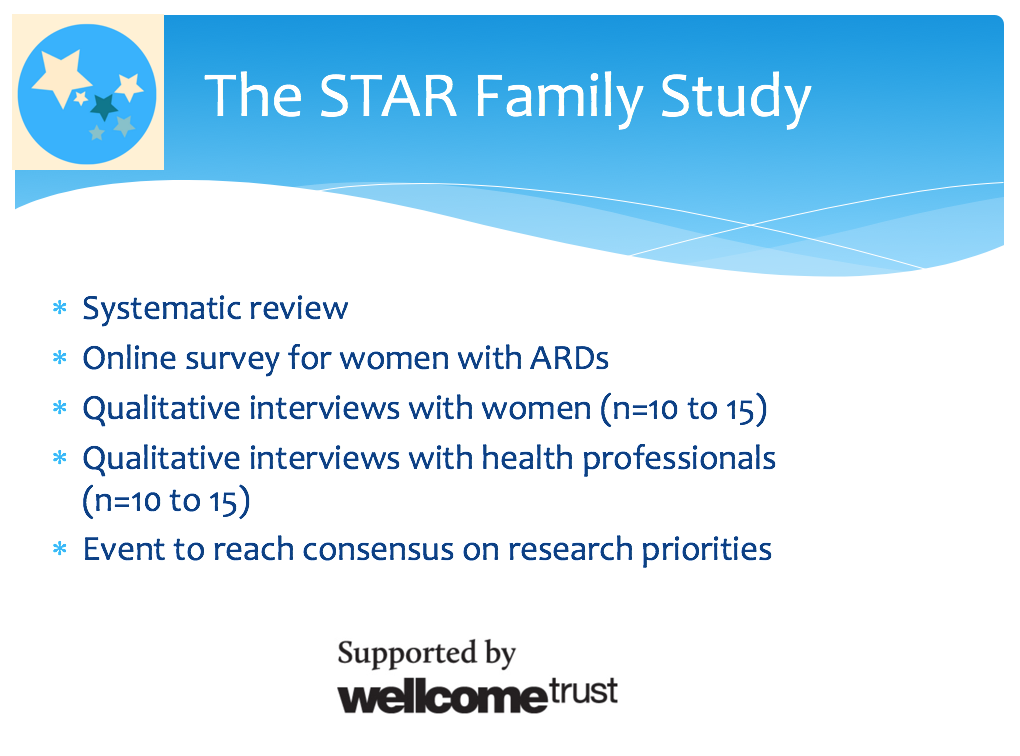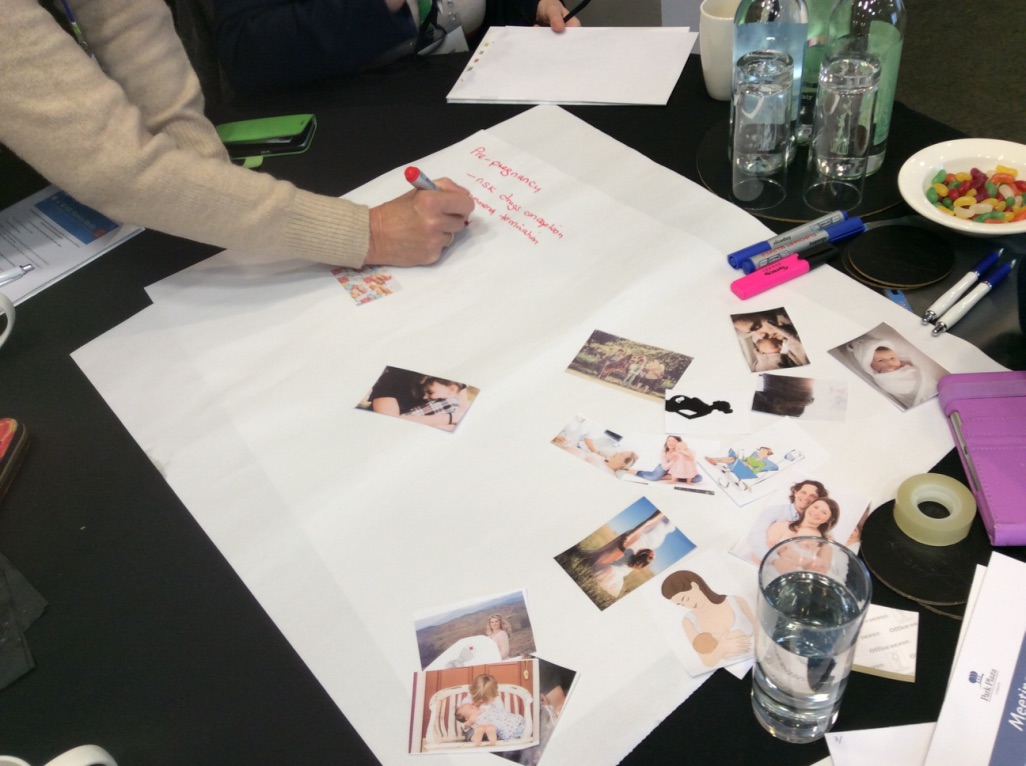STAR Family Study Stakeholder Meeting
25th January 2017, Cardiff
 The STAR Family Study stakeholder event, held on 25th January 2017, brought together women with persistent pain, health and social care professionals, and researchers with an interest in improving support for women with long-term musculoskeletal conditions on their journey to parenthood. Musculoskeletal pain and various other long-term limiting illnesses are common in the general population.
The STAR Family Study stakeholder event, held on 25th January 2017, brought together women with persistent pain, health and social care professionals, and researchers with an interest in improving support for women with long-term musculoskeletal conditions on their journey to parenthood. Musculoskeletal pain and various other long-term limiting illnesses are common in the general population.
Previous studies have shown that around one in ten women who have recently given birth have some form of long-term limiting illness, with musculoskeletal problems being the most common. Yet we know little about the information and support needs of people with musculoskeletal conditions on their journey to parenthood.
The event was held to share findings of the research completed to date as part of the STAR Family Study (Starting a family when you have an autoimmune rheumatic disease). This six month project aimed to look at current practice, identify gaps in information and support needs, and find out the key areas for further research.
 The STAR Family Study is led by Dr Rhiannon Phillipsfrom PRIME Centre Wales, Cardiff University, and was funded by Wellcome Trust Institutional Strategic Support Fund Awards (Cardiff University). The stakeholder meeting was an opportunity to feedback the findings of the research so far, as well as to hear from guest speakers who are international experts in the field.
The STAR Family Study is led by Dr Rhiannon Phillipsfrom PRIME Centre Wales, Cardiff University, and was funded by Wellcome Trust Institutional Strategic Support Fund Awards (Cardiff University). The stakeholder meeting was an opportunity to feedback the findings of the research so far, as well as to hear from guest speakers who are international experts in the field.
Dr Phillips talked about the work that their team have been carrying out on autoimmune rheumatic diseases, including the many challenges that women face right through from pregnancy planning to caring for young children. The STAR Family Study involved hearing about the challenges women with autoimmune rheumatic diseases (e.g. inflammatory arthritis and connective tissue diseases) face and the support they need when planning a family, pregnant or when they have young children, as well as hearing from a range of health professionals about the care and support that women receive during this stage in their lives.
This could be anything from getting advice on medication use during pregnancy and breastfeeding to getting practical help with young children. Ms Bethan Pell went on to tell the group about the novel qualitative research methods being used to interview women in this study, which place an emphasis on empowering women to tell their stories in their own words.
Dr Ed Keogh from the University of Bath, talked to the group about gender and pain. He highlighted key differences in pain, driven by biological, psychological and social factors. Dr Keogh spoke about how our gender roles, that is the culturally and socially constructed ideas that we have about how men and women should behave, can drive some of these differences in how we respond to pain. He also highlighted that there are many similarities between the sexes, and considerable variation within the sexes, in terms of how we experience and respond to pain. There is much research to do in this area, but it is certainly an important and interesting issue.
Dr Wendy Jones, founder of the www.breastfeeding-and-medication.co.uk site and advisor to the Breastfeeding Network, spoke to the group about the importance of providing high quality information to women with musculoskeletal pain about the safety of medications during breastfeeding, given the potential benefits of breastfeeding for both mothers and babies.
Dr Denitza Williams, the primary post-doctoral researcher on the STAR Family Study, spoke to the group about Shared Decision Making in health care consultations, and highlighted the potential benefits of this approach for women who have musculoskeletal complaints.
The group took part in various activities over the course of the day that enabled them to generate and prioritise important areas for research in this area. Discussions from the day will be used to inform the focus and research plans for the team to take forward to help improve information and support for women and their families during this important time in their lives.
